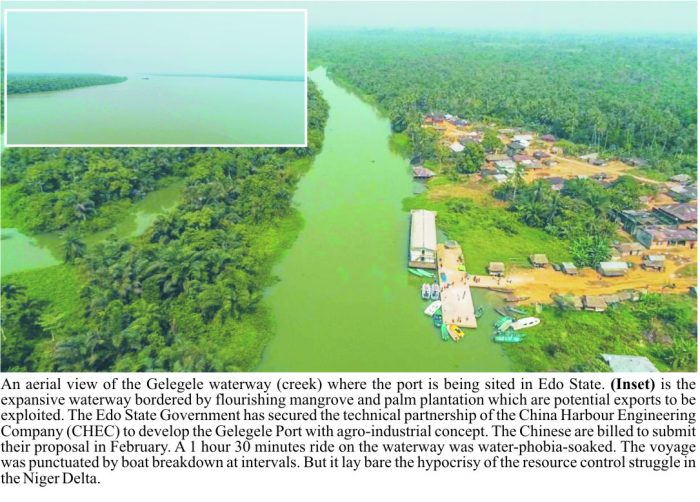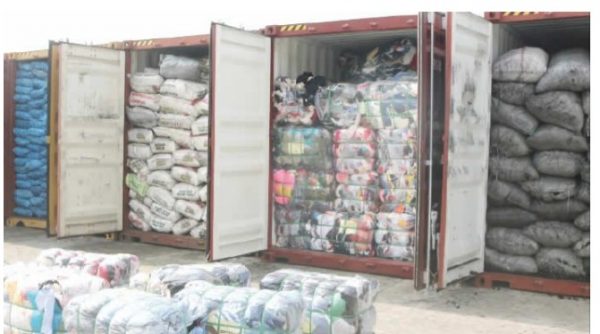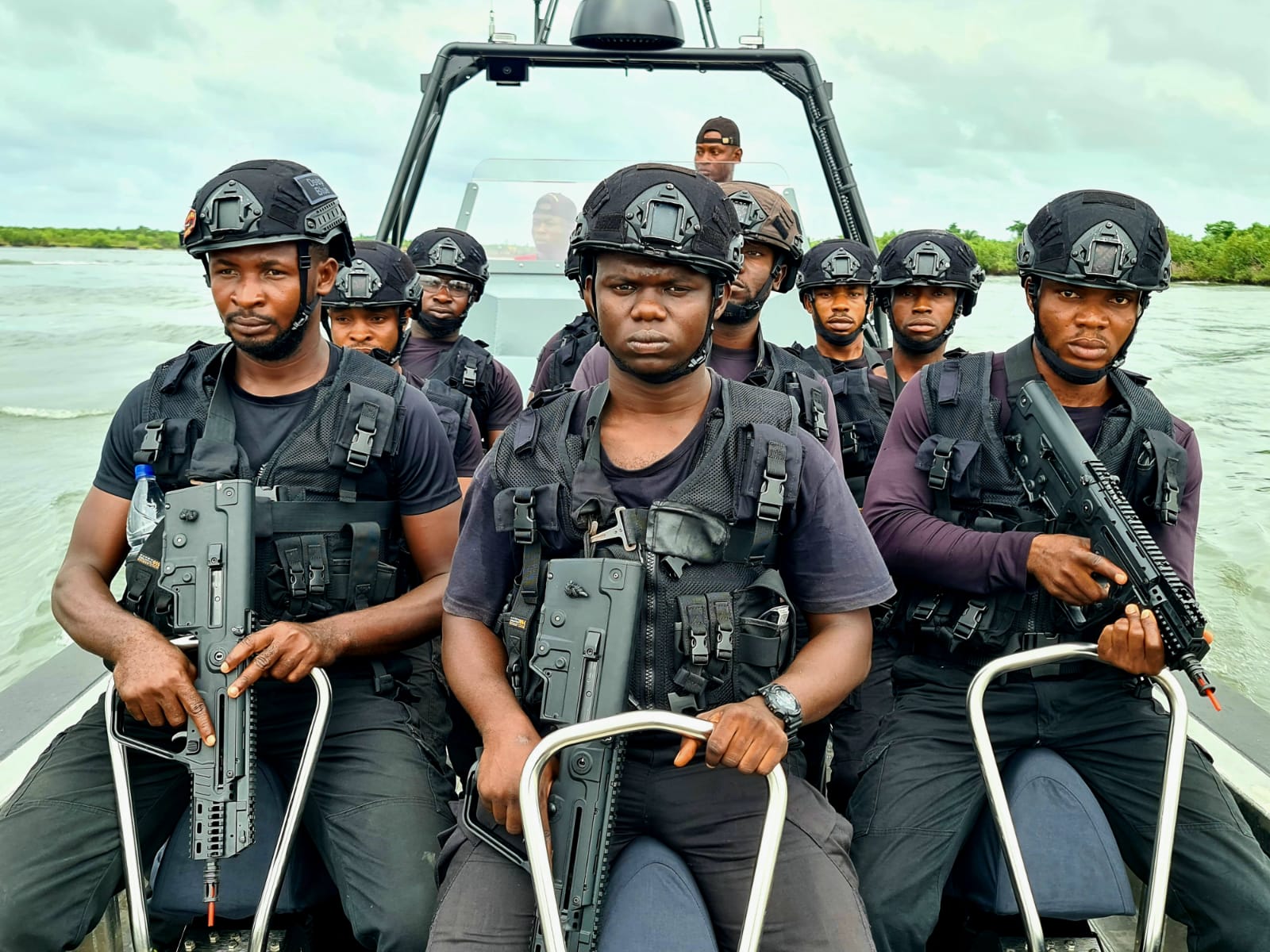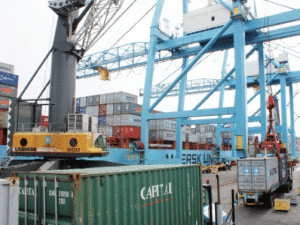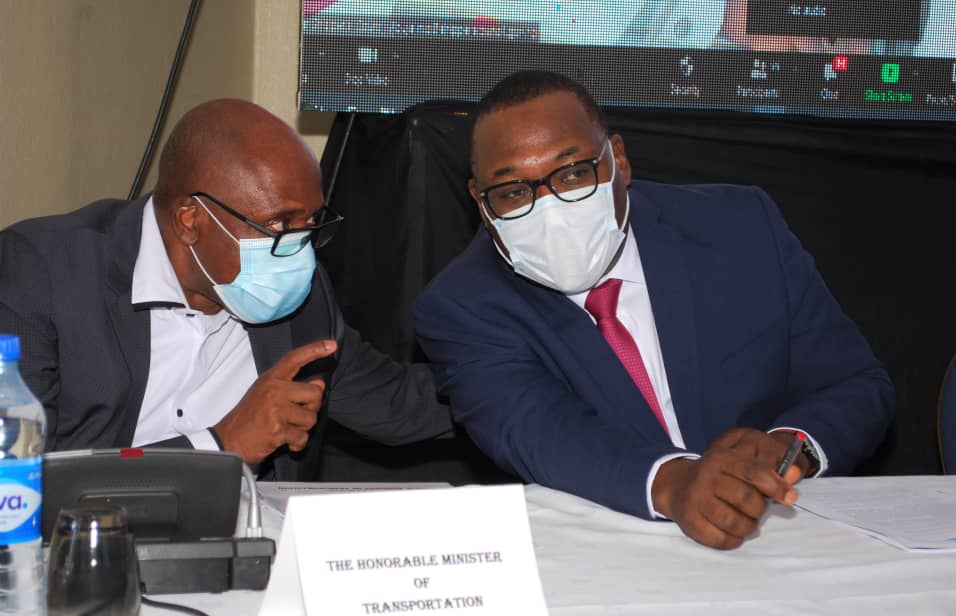How Nigeria Loses N35billion In Oil Bunkering Annually
- Why Maersk line, Grimaldi, others bunker in Abidjan, Angola
By Kenneth Jukpor
Investigations have shown that Nigeria loses N35 billion annually as a result of its absence from legitimate oil bunkering,.This calculation is based on average annual ship traffic of 5,000 according to statistics from the National Bureau of Statistics (NBS).
NBS reports that 5,369 vessels berthed at Nigerian ports in 2013, 5,349 vessels in 2014, 5090 vessels in 2015, and 4,025 vessels in 2016, an average of approximately 5,000 vessels yearly multiplied by a modest N7million cost per vessel to bunker.
Although the average Nigerian understands bunkering as oil theft popular in the Niger-Delta region of the country, bunkering is simply the act of fueling a vessel.
Bunkering is like taking a vehicle to the filling station to get fuel. The place where the fuel is stored in a ship is called bunker tank and that’s where the fuel that propel the ship is stored. Bunkering isn’t oil theft; it is a legitimate trade worldwide and a massive industry.
While the emergence of Dangote refinery has been tipped to be a game-changer in the nation’s oil bunkering business, there are also indications that the business would remain dominated by foreign bigwigs like Denmark’s Monjasa and DAN Bunkering, Korea’s SK Shipping, etc.
The spokesperson for the Department of Petroleum Resources (DPR), Mr. Paul Osu, recently stated that the agency was determined to ensure that Nigeria becomes an attractive bunkering hub, but the agency’s resolve is quizzed by the reality that DPR hasn’t issued a single license to a bunkering company in the last 20 years.
Speaking to MMS Plus in an exclusive chat, the Chief Executive Officer of Sopetro Marine Limited and Downstream Coordinator of the Ship Owners Association (SOAN), Mr. Mina Oforiokuma lamented that Lagos was the only major port where international vessels couldn’t officially bunker their vessels.
“The major ports in Africa like Durban, Cape Town, Luanda, Abidjan, Dakar, etc., have bunker services but Lagos doesn’t have. What this means is that if a large vessel comes to Lagos from Europe for instance and it needs fuel because its next journey is to Luanda in Angola. That vessel cannot officially bunker in Lagos because we don’t have such services. No license has been issued to anyone for bunkering in the last 20 years. In fact, Nigerian government has placed a ban on bunkering; so it is illegal to bunker a ship in the Lagos pilotage region.” He said.
Mina queried DPR for not issuing any bunkering license for two decades. “Why can’t the DPR issue these licenses? Why can’t these vessels be allowed to stop offshore Lagos to take 50tonnes or 100tonnes that would keep the vessel going and build-up the nation’s local capacity?” he asked rhetorically.
Meanwhile the DPR spokesman recently assured that the agency was set to change the situation, stressing that “a viable bunker trade operation in the country is capable of spawning quite a few other activities that revolve around vessel bunkering with correspondent multiplier effect.”
He acknowledged the menace of illegal bunkering, but added that the agency was “engaging all stakeholders towards strengthening regulations that will kick-start a robust bunker trade system in the country’s territorial waters as an anti-thesis to spots of illegal activities being reported”.
Speaking further on illegal bunkering, Mina noted that there are several Nigerians who bunker vessels. “The problem with the illegal bunkering business is that the major shipping lines like Grimaldi, Maersk line and all those major tankers that supply NNPC would never take bunker from illegal sources. They would rather stop offshore Abidjan, Luanda or other places to bunker and continue their journey; otherwise they could lose their insurance for taking illegal bunker.”
“Meanwhile, within the West African waters are a few major international bunker traders such as Monjasa of Denmark, they have between 10-12 vessels along the African coast; Dan bunkering also of Denmark operates in Africa; SK Shipping from Korea is also another major global bunkering company that supplies all the Chinese shipping fleet in the region. There are also other dealers but these companies don’t have any base in Nigeria and international vessels take bunker from them because they have their offices in other major port cities in the world and their tankers are all in class. A Maersk line ship wouldn’t go along a rickety Nigerian ship to take bunker no matter how cheap because they put the safety of their vessels in danger as those barges aren’t in class or insured. Any international ship take risks taking bunker from such sources could lose its insurance and if anything incident occurs the company faces the consequence” he added.
Citing the scenario of Nigerian Liquefied Natural Gas (NLNG) owned by Bonny Gas Transport Company, Mina also lamented that the 22 NLNG carriers are all Nigerian owned but none of them is flagged in Nigeria or insured in Nigeria.
“Most of them are flagged in Bermuda and they don’t take bunkers in Nigeria. NLNG for the first time has said a Nigerian company should come and bid for its bunkering service, but they have been in existence since 1988 and they have been doing business and buying bunkers internationally” he said.
On his part, the General Manager, Office of the Managing Director at NPA, Capt. Ihenacho Ebubeogu posited that Nigeria had to change the complex procedures required for acquiring licenses for oil bunkering.
“Nigeria has to change the institutional and legal framework to encourage oil bunkering business. We must distinguish between oil theft and bunkering. Dangote refinery is set to change the game of the business but if we fail to take the necessary steps. NPA, NIMASA and DPR have crucial roles in this; DPR for the quality of the products, NIMASA is to ensure the vessels are sea and cargo worthy while NPA ensures that the ships are licensed within their specification to operate within the harbour areas.
Ebubeogu noted of problems in the business is the confusion between pipeline vandalization/oil theft and oil bunkering. “Pipeline vandalization is illegal and criminal while bunkering is what you supply to the ship. DPR should have a clear Standard Operating Procedure (SOP) to ensure that people can get licenses to do genuine oil bunkering. If people start calling for bunkering licenses because of the prospects with Dangote’s refinery, we can’t subject them to the rigorous process that is available now. We should be able to separate stolen cargo from genuine cargo and sanction those found with stolen cargo” he said.
Copyright MMS Plus.
All rights reserved. This material, and other digital content on this website, may not be reproduced, published, broadcast, rewritten or redistributed in whole or in part without prior express written permission from KINGS COMMUNICATIONS LIMITED.

